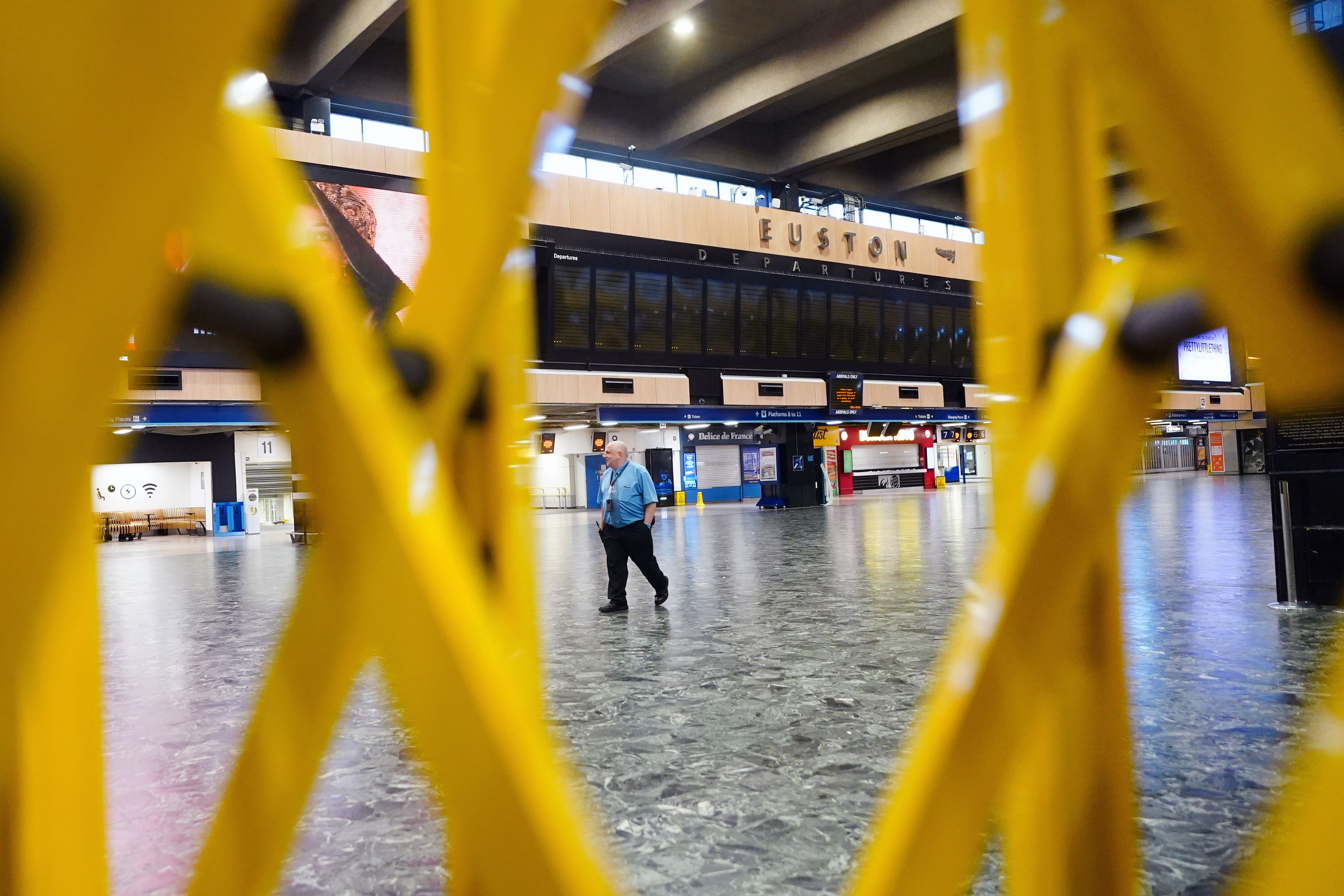RMT members reject Network Rail pay offer on eve of national train strike
A 64:36 majority supported union in turning down the offer

Your support helps us to tell the story
From reproductive rights to climate change to Big Tech, The Independent is on the ground when the story is developing. Whether it's investigating the financials of Elon Musk's pro-Trump PAC or producing our latest documentary, 'The A Word', which shines a light on the American women fighting for reproductive rights, we know how important it is to parse out the facts from the messaging.
At such a critical moment in US history, we need reporters on the ground. Your donation allows us to keep sending journalists to speak to both sides of the story.
The Independent is trusted by Americans across the entire political spectrum. And unlike many other quality news outlets, we choose not to lock Americans out of our reporting and analysis with paywalls. We believe quality journalism should be available to everyone, paid for by those who can afford it.
Your support makes all the difference.As the first cancellations ahead of the next round of national train strikes take effect, Network Rail staff belonging to the RMT union have voted to reject a pay offer.
The rail infrastructure provider had offered a 5 per cent pay rise this year and 4 per cent in 2023 – with a guarantee of no compulsory redundancies before 2025. In addition, a discount scheme for families of rail workers was proposed.
Union bosses had urged members to reject the Network Rail offer in an online referendum. They did so by a majority of 63.6 to 36.4 on an 83 per cent turn-out, representing 55 per cent of all members voting for rejection.
With no improved offer from either Network Rail or the train operators on the horizon, the full series of national rail strikes is set to go ahead.
There will four 48-hour stoppages involving staff for Network Rail and for 14 train operators: on 13-14 and 15-16 December, plus 3-4 and 6-7 January.
The first train to be cancelled around the first walk-out was the 5.30pm from Sunderland to London King’s Cross on Monday afternoon.
Around 80 per cent of trains will be axed during the strikes, with further disruption in the days after the walk-outs.
In addition, RMT members working for Network Rail will stop work from 6pm on Christmas Eve until 6am on December 27. This bout of industrial action will have little immediate effect on passengers, but is intended to wreck engineering projects scheduled for Christmas Day and Boxing Day.
The RMT general secretary, Mick Lynch, said: “This is a huge rejection of Network Rail’s substandard offer and shows that our members are determined to take further strike action in pursuit of a negotiated settlement.
“The government is refusing to lift a finger to prevent these strikes and it is clear they want to make effective strike action illegal in Britain.
“We will resist that and our members, along with the entire trade union movement will continue their campaign for a square deal for workers, decent pay increases and good working conditions.”
Andrew Haines, chief executive of Network Rail, said: “This news is especially frustrating, given that we learnt today that colleagues represented by Unite union have accepted the very same offer put to RMT members.
“The RMT are the outliers here, they need to stop playing politics and work with us to bring this dispute to an end.
“There is clearly a significant number of Network Rail colleagues who want this deal, but are caught up by these needless strikes and collective bargaining. Our offer, which is worth over 9 per cent, with a guarantee of compulsory redundancies and no changes to anyone’s terms and conditions remains on the table.
“Our railway still faces a real financial crisis and because of that, we will continue with the consultation around the implementation of the maintenance reforms.
“Sadly, with strikes now set to go ahead, passengers can expect to see widespread rail disruption throughout the week. We will continue to work closely with operators to run as many services as possible but we continue to ask passengers to only travel if absolutely necessary.”
Join our commenting forum
Join thought-provoking conversations, follow other Independent readers and see their replies
Comments